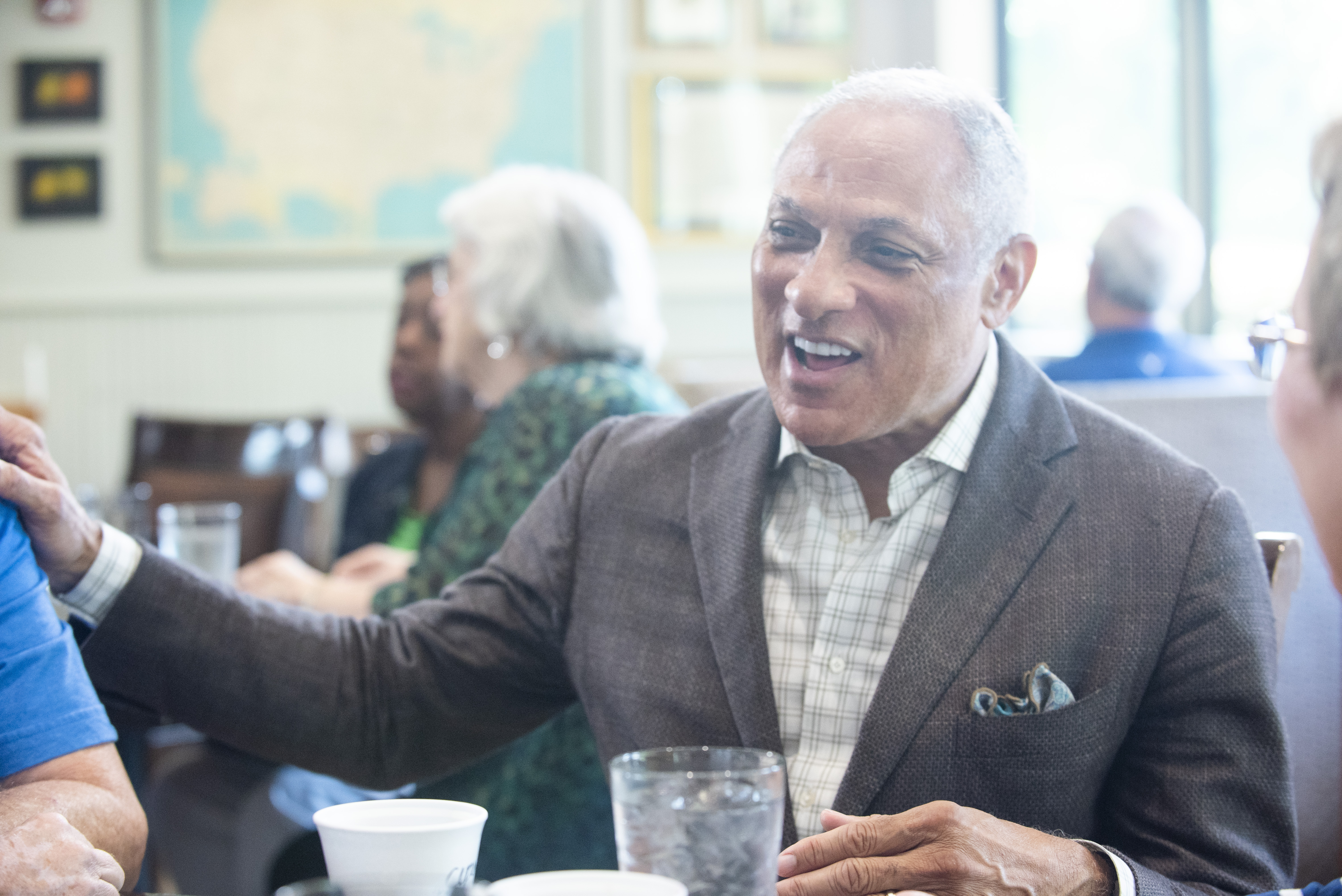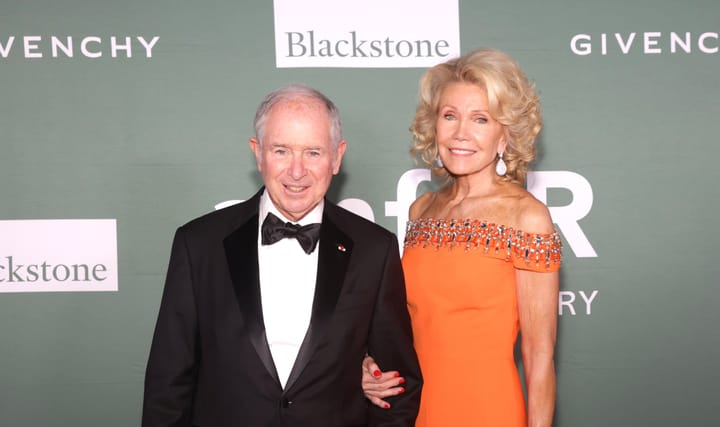Mississippi Senate Race: Where is the National Democratic Party?
In the final U.S. Senate contest, Mississippi Democratic candidate Mike Espy hasn’t gotten much help from the national party.

One Senate election is still yet to come, but based on today’s airwaves, you wouldn’t know the Democratic Party had a stake in it. Democratic former Rep. Mike Espy faces incumbent Republican Cindy Hyde-Smith in the final 2018 Senate contest, which will determine how much of a majority the GOP will have in the next session of Congress.
A conservative in a deep red state, Hyde-Smith is the favorite, but with Democratic statewide candidates in other southern states such as Stacey Abrams in Georgia and Andrew Gillum in Florida performing quite well in the 2018 blue wave, there’s still a chance Espy could pull off a victory. Because none of the four general election candidates won a majority of votes, the top two finishers, Espy and Hyde-Smith, will compete in a runoff election on Nov. 27.
In terms of advertising, while the National Republican Senate Committee (NRSC) and the Mississippi Republican Party have spent money on independent expenditures to boost Hyde-Smith since the Nov. 7 general election, Democratic Party groups appear to be missing in action. The Democratic Senatorial Campaign Committee (DSCC) hasn’t reported making any independent expenditures in the race all year, and nor has the Mississippi Democratic Party.
Independent super PACs on both sides are spending, but Hyde-Smith is enjoying a big post-general advantage in outside aid. The NRSC has reported spending over $1.2 million on ads, including one that critiques Espy’s lobbying career. Senate Leadership Fund has spent nearly $1.2 million on TV, radio and digital ads attacking Espy and tying him to the Clintons.
On the Democratic side, Senate Majority PAC reported spending over $500,000 on a TV ad on Friday that continues the successful strategy of tying Republicans to big, corporate money. “Cindy Hyde-Smith got paid to lobby in Washington for health insurance companies,” says the narrator. “Now she’s taking tens of thousands in campaign money from the insurance industry.”
As of 5 p.m. EST on Friday afternoon, outside groups backing Espy had reported spending $527,000 on independent expenditures since Nov. 8, far less than the nearly $2.7 million spent in support of Hyde-Smith.
See the below table for details on the independent expenditures in the race since Nov. 8.
The two candidates have raised similar amounts for their campaigns since the general election. Espy has reported raising roughly $250,000 in campaign donations since Nov. 8, while Hyde-Smith has received $261,000, according to a Sludge review of Federal Election Commission reports on Friday afternoon. At that point, the Democratic challenger had $498,000 in his campaign bank account, while Hyde-Smith had $465,000, minus unreported expenditures since Nov. 8. Espy’s joint fundraising committee, just launched in October, reported on Friday that it has raised over $80,000, including $5,000 from House Minority Leader Nancy Pelosi (D-Calif.).
Individual Democratic elected officials are supporting Espy. Sen. Kamala Harris (Calif.) will campaign with Espy in Mississippi on Saturday, and Sen. Cory Booker (N.J.) will do so on Monday.
While the Mississippi Democratic Party hasn’t filed any independent expenditure reports, it is quite active in the Senate race, says Party Chairman Bobby Moak. “We’re doing the same thing that we’ve done in the general election: a ground game for getting out the vote, phone banks, postcards, and text messages in the millions,” he said. “We don’t directly contribute to our candidates; we simply try to put tools in place that will help them.”
The national Democratic Party “is a large part of what we’re able to do,” Moak continued. The Party “has been very, very supportive of us,” he said, and it has “allowed us to expand folks at party headquarters and minority coordinators in the field.”
The DSCC did not respond to a request for comment, but Moak told Sludge that he thinks the DSCC is involved in the race. “But we would not be privy to what it is that they’re spending on, and not privy to their game plans,” he added.
The Democratic National Committee and the Espy campaign also did not return requests for comment.

Public Hangings?
Hyde-Smith has been in the spotlight recently for two comments that shocked many people, both captured on video. Attack ads are common among campaign advertisers, so Espy supporters could use these incidents against his opponent.
On Sunday, a video of a Nov. 2 campaign event surfaced. Unprompted, Hyde-Smith said this about one of her supporters: “If he invited me to a public hanging, I’d be on the front row.” Espy is black, and Mississippi has a terrifying history of lynchings. In answering her critics, Hyde-Smith said, “I used an exaggerated expression of regard, and any attempt to turn this into a negative connotation is ridiculous.”
After her comment was made public, the senator has continued to receive campaign contributions from the likes of Google, Blackstone CEO Stephen Schwarzman, former Mississippi Gov. Haley Barbour, and GOP megadonor Peter Zieve. Google claimed it made the contribution before Hyde-Smith’s comments were made public and that it would not have done so if it had known about the remarks. Racial justice organization Color of Change has a petition demanding that Google’s PAC return the $5,000 donation.
“Look, I’m down here in the heart of Southwest Mississippi,” said Moak. “We come from a long line of southerners. That kind of conversation—I never even heard that growing up. It’s not even in the repertoire down here as to the ‘front seat of a public hanging.’”
Espy spokesperson Danny Blanton told Politico, “Cindy Hyde-Smith’s comments are reprehensible. They have no place in our political discourse, in Mississippi, or our country. We need leaders, not dividers, and her words show that she lacks the understanding and judgment to represent the people of our state.”
In an alleged joke, Hyde-Smith spoke to supporters on Nov. 3 about using voter suppression to her advantage. “There’s a lot of liberal folks in those other schools who that maybe we don’t want to vote,” she said. “Maybe we want to make it just a little more difficult. So, I think that’s a great idea.”
“When you talk about suppressing the vote to a group of college students on a college campus, I mean, what are you thinking?” said Moak. “You are a sitting United States senator and you’re saying those types of things about suppressing votes and about public hanging. I mean, come on, where is that coming from?”




Comments ()